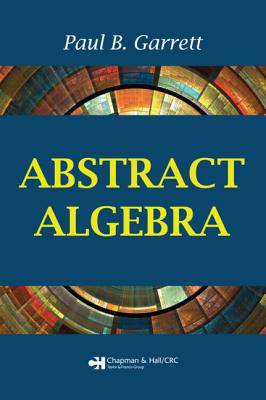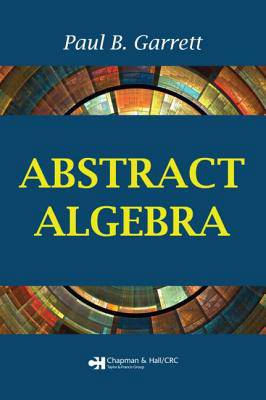
- Afhalen na 1 uur in een winkel met voorraad
- Gratis thuislevering in België vanaf € 30
- Ruim aanbod met 7 miljoen producten
- Afhalen na 1 uur in een winkel met voorraad
- Gratis thuislevering in België vanaf € 30
- Ruim aanbod met 7 miljoen producten
Zoeken
Omschrijving
Designed for an advanced undergraduate- or graduate-level course, Abstract Algebra provides an example-oriented, less heavily symbolic approach to abstract algebra. The text emphasizes specifics such as basic number theory, polynomials, finite fields, as well as linear and multilinear algebra. This classroom-tested, how-to manual takes a more narrative approach than the stiff formalism of many other textbooks, presenting coherent storylines to convey crucial ideas in a student-friendly, accessible manner. An unusual feature of the text is the systematic characterization of objects by universal mapping properties, rather than by constructions whose technical details are irrelevant. Addresses Common Curricular Weaknesses In addition to standard introductory material on the subject, such as Lagrange's and Sylow's theorems in group theory, the text provides important specific illustrations of general theory, discussing in detail finite fields, cyclotomic polynomials, and cyclotomic fields. The book also focuses on broader background, including brief but representative discussions of naive set theory and equivalents of the axiom of choice, quadratic reciprocity, Dirichlet's theorem on primes in arithmetic progressions, and some basic complex analysis. Numerous worked examples and exercises throughout facilitate a thorough understanding of the material.
Specificaties
Betrokkenen
- Auteur(s):
- Uitgeverij:
Inhoud
- Aantal bladzijden:
- 464
- Taal:
- Engels
Eigenschappen
- Productcode (EAN):
- 9781584886891
- Verschijningsdatum:
- 25/09/2007
- Uitvoering:
- Hardcover
- Formaat:
- Genaaid
- Afmetingen:
- 188 mm x 261 mm
- Gewicht:
- 1038 g

Alleen bij Standaard Boekhandel
+ 486 punten op je klantenkaart van Standaard Boekhandel
Beoordelingen
We publiceren alleen reviews die voldoen aan de voorwaarden voor reviews. Bekijk onze voorwaarden voor reviews.











